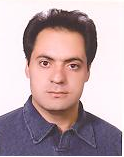Dr.Abolfazl Barzegar

|
Abolfazl Barzegar Associate Prof. in Biophysics |
|
|
Work address: Department of Animal Biology Faculty of Natural Sciences University of Tabriz Phone: +98(41)33393922 Email: barzegar@tabrizu.ac.ir |
Dr. Abolfazl Barzegar received his PhD in Biophysics from Institute of Biochemistry and Biophysics (IBB), University of Tehran, Iran, 2008. He achieved good international experiences during 2007-2008 as scientific visitor and researcher, by working on the project at University of Rome La Sapienza, Italy. He got Young Scientist Forum (YSF) Award at OzBio2010, September 2010, Melbourne-Australia. Dr. Barzegar is academic staff, associate professor of bioscience, at University of Tabriz. He is author of more than 70 scientific articles published in peer reviewed international prestigious journals (H-index Google Scholar 23, Scopus 20). Based on the Scopus CiteScore Citation metrics (Published: 08-10-2020, https://data.mendeley.com/datasets/btchxktzyw/2), Dr. Barzegar has become included in the prestigious TOP 2% ranking list of the most influential 160,000 top-scientists in the world. He coordinated several national research projects in the fields of Bioscience, Medicinal Chemistry, and Regeneration Medicine. Recently, he has been awarded international project grant by applying TabrizU-300 Program. Also, his recent research work in Regeneration Medicine is mainly focused on electrospun nanofiber fabrication for tissue regeneration in recent. He has good collaboration with coauthors in Tabriz University of Medical Sciences for electrospinning nanofibers mainly in wound healing. In this regard, he is coordinating as a supervisor of more than 14 MSc/PhD students related to nanofiber fabrication for different tissue regeneration.
Research interests:
|